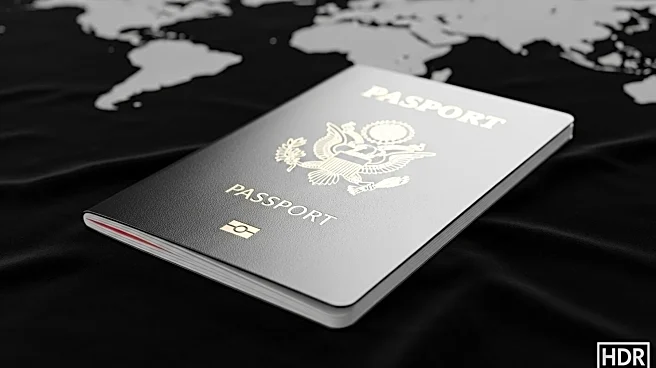What's Happening?
Travel insurance policies are increasingly offering coverage for passport replacement, a significant benefit given the rising costs of passports worldwide. According to a report by Compare the Market, the Australian passport remains the most expensive globally, costing $412 for a 10-year validity. This marks a substantial increase from $346 in early 2024, following two price hikes. The report analyzed 23 countries, noting that nine have seen price increases in 2025, including Mexico and the UK. The cost of passports varies significantly, with India offering the cheapest at $26.63. The report also highlights the cost per visa-free country, with Australia paying $2.23 per country, compared to the UK's $1.04. General Insurance executive Adrian Taylor emphasized the importance of travel insurance in covering unexpected passport loss or damage, which affects approximately 30,000 Australians annually.
Why It's Important?
The rising cost of passports, particularly in Australia, underscores the financial burden on travelers, making travel insurance a crucial consideration. With passports being a fundamental travel document, their loss or damage can lead to significant stress and financial strain. Travel insurance that covers passport replacement offers peace of mind and financial protection, especially for Australians who face the highest passport costs globally. This development is significant for the travel industry, as it may influence consumer decisions regarding travel insurance purchases. Additionally, the disparity in passport costs and visa-free access highlights broader economic and diplomatic implications, potentially affecting international travel patterns and policies.
What's Next?
As passport costs continue to rise, travelers may increasingly seek comprehensive travel insurance policies that offer passport replacement coverage. This trend could lead to more competitive offerings from insurance providers, aiming to attract consumers by addressing this specific need. Furthermore, governments may face pressure to justify passport price hikes and explore ways to mitigate costs for citizens. The travel industry might also see shifts in consumer behavior, with travelers prioritizing destinations with lower entry costs and better value for money. Stakeholders, including insurance companies and travel agencies, will likely monitor these developments closely to adapt their strategies accordingly.
Beyond the Headlines
The rising passport costs and the role of travel insurance in mitigating these expenses reflect broader economic and social dynamics. The financial burden of passport replacement can disproportionately affect lower-income travelers, raising ethical considerations about accessibility and equity in international travel. Additionally, the emphasis on travel insurance highlights the growing importance of risk management in travel planning, potentially leading to increased consumer awareness and demand for comprehensive coverage options. This shift may also prompt discussions on the role of government in regulating passport costs and ensuring fair access to travel opportunities.











